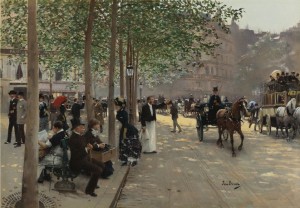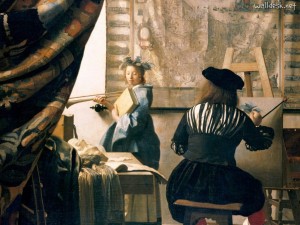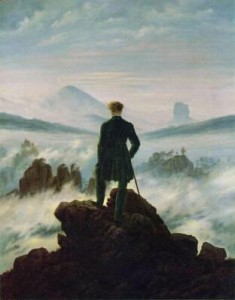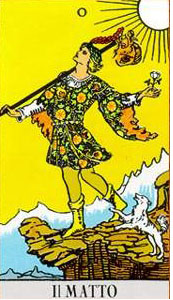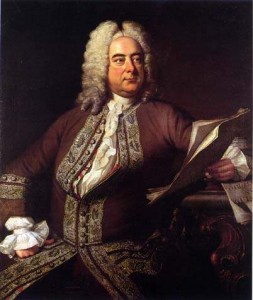15 aprile 2014
Esiste una giovinezza immaginata e collocata in un tempo, forse mai accaduto, dove il cammino, e la stasi su un gradino di casa, o in una panchina nella strada, o di un locale all’aperto, era più di un semplice stare o riposare.
Vi era l’eccitazione di incontrare amici e persone care, dopo un giorno di lavoro o di minimi impegni formali. Camminare a zonzo, indugiare in circuiti appena percorsi nel parlare o nell’osservare i passanti, era già una risposta momentanea alle domande inespresse dei sonni della notte e delle albe tormentate. Sia nel clima umido, ma di più per le giornate miti con il Sole infastidito dai pizzichi delle nuvole, spinte da venti dispettosi, si sorrideva appena usciti dagli spazi murati della mente e del corpo.
Gli eventi del passato anche se così non sono accaduti, però comparendo nel presente, si trovano a loro agio. Si vestono di un’armonia assonante tra le sensazioni del proprio corpo rilassandosi nel compiere azioni primordiali e con le emozioni che invocano una visione panoramica dello spazio circostante.
Jean Béraud, Avenue Parisienne
Le contemplazioni offrono attimi d’esser lieti con la sensazione fisica di stare semplicemente senza chiedere il perché e senza concentrarsi sul come. La sensazione di respirare sorridendo nell’osservare i posti familiari e sempre omessi nelle faccende di perseguimento di scopi ben delineati, offre una appagante visione estetica che si tramuta in un immediato benessere fisico.
Questa sensazione ritenuta normale quando appare, e sempre perseguita nei luoghi dell’isolamento e negli spazi dell’angoscia, è l’espressione della contemplazione di essere distinti ma in assonanza con ciò che ci accompagna nel divenire di tutte le cose.
Compagnie
Siedo assolato
d’ombra coperta
con bevanda
d’oro colato
dalla fonte infinita.
Assenti freddure
congedano arie
granulate da
ipocrite pretese
di compagnie
inutilmente contese.
Contemplo pieno
di buona indole
ogni orma accaldata,
che sfiora nell’ombra,
piani lasciti
riflessi da schegge
della mia armonia.
Per ascoltare Buena Vista Social Club— “Chan Chan” Premi QUI
